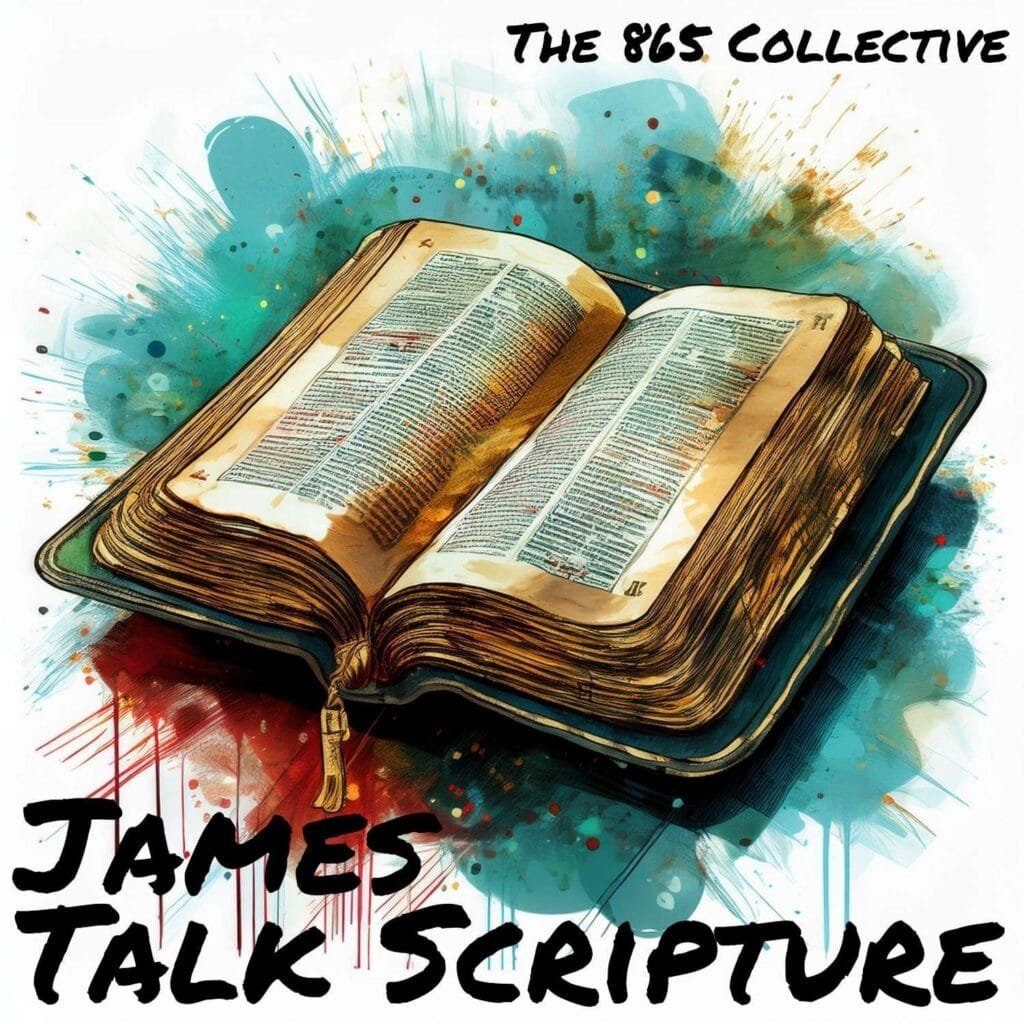Welcome to Talk Scripture!
I’m Zach, and I’m thrilled to kick off our season diving into the Book of James.
This book resonates with me because it’s so practical, so direct. James is all about faith, but not just the kind you keep tucked away. It’s about faith that fuels action – faith and works. To James, they’re intertwined. Faith is us inhaling the saving breath of God, and works is us exhaling what the breath of life has produced in us. Our faith should impact us, our actions, and ultimately, the world around us.
Surprisingly, even James 1:1, a seemingly simple introductory verse, is packed with insights. Let’s take a look:
“James, a servant of God and of our Lord Jesus Christ, to the twelve tribes in the dispersion, greetings.”
While the “twelve tribes in the dispersion” and the “greetings” are interesting in their own right (referencing the Jewish people scattered after persecution, like in Acts 8 after Stephen’s stoning), I want to focus on the first part: “James, a servant of God and of our Lord Jesus Christ.”
Notice the specific language: “Lord Jesus Christ.” It echoes Acts 2, where Peter proclaims Jesus as both Lord and Christ. James uses this powerful combination to define his relationship. But who is James?
So, who is this James? Most scholars agree it’s James, the half-brother of Jesus. Think about that for a second. Brother of Jesus. It’s a pretty incredible thought. James was actually a skeptic at first, but he became a key leader in the early church and eventually died a martyr for his faith. What could possibly cause such a transformation?
Something significant happened, something that resonates through history and speaks to us even today. James was a firsthand witness to Jesus’ life. He grew up with him! Imagine the pillow fights, the shared meals, the everyday moments. James knew Jesus as a person. But, as John 7:5 tells us, even Jesus’ own brothers didn’t believe in him during his ministry.
James was also a firsthand witness to the resurrection. 1 Corinthians 15:7 mentions Jesus appearing to James. Both these witnesses – the life and the resurrection – are crucial to understanding the Book of James.
Think about it: If James had only witnessed Jesus’ life, even a perfect life, would we have this book? If he’d only witnessed the resurrection, some might dismiss it as a mere miracle, not necessarily proof of Jesus’ divinity. But James saw both. He saw the perfect life and the undeniable resurrection. That’s what transformed him from skeptic to believer, leader, author, and ultimately, martyr.
The disciples, flawed and fearful, witnessed Jesus’ life and teachings, yet they were transformed after the resurrection. Had Jesus not risen, they would likely have remained in hiding, their story lost to history. The resurrection emboldened them, just as it emboldened James.
James begins his letter by defining himself: “a servant of God and of the Lord Jesus Christ.” He doesn’t emphasize his familial connection; his relationship with Jesus had become something much deeper.
Just like James, we need to define our identity. We need to know who we are before we can understand our purpose. The crucial question isn’t just “Who am I?” but “Whose am I?”
Where do you see yourself on the spectrum from skeptic to servant? Wherever you are, this message is for you. Whether you’re exploring faith, new to it, or a long-time believer, it’s vital to reflect on whose you are. That understanding shapes who you are and helps you align your values and actions. James is going to challenge us on these very points, so take some time today to consider these questions. Who are you? Whose are you? It’s the first step in understanding the powerful message of James.
From Talk Scripture: Skeptic to Martyr | James 1:1, Jan 27, 2025
https://podcasts.apple.com/us/podcast/talk-scripture/id1786264764?i=1000685626990
This material may be protected by copyright.
ESV Study Bible. (2010). Crossway Books.

